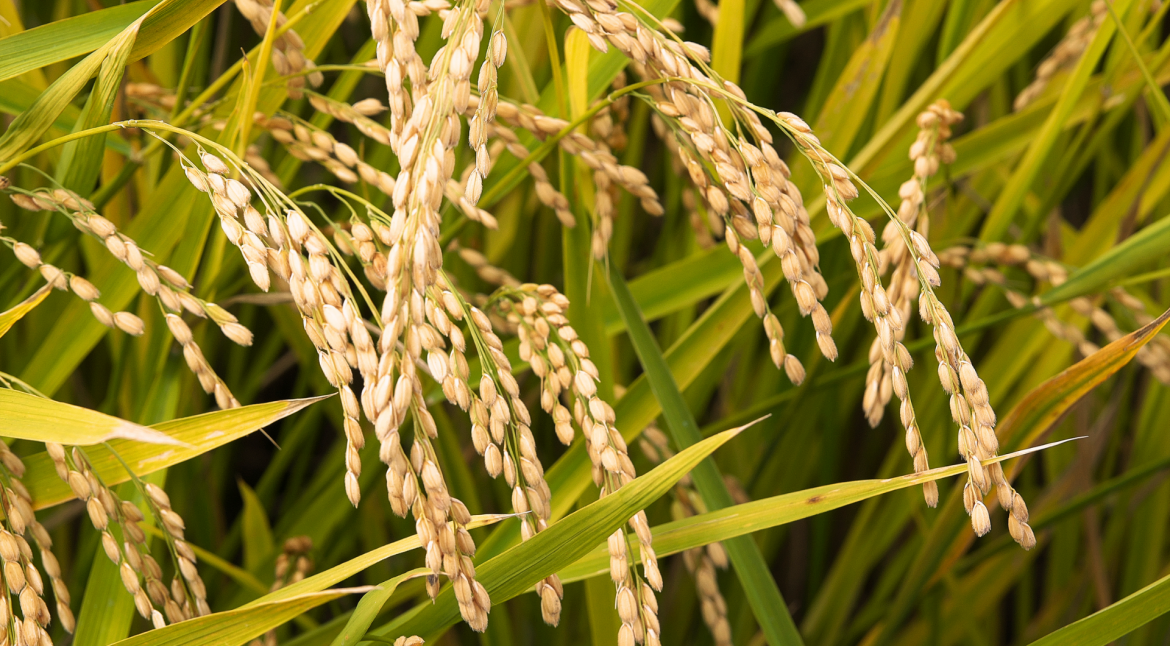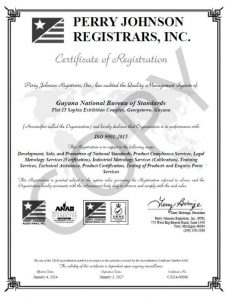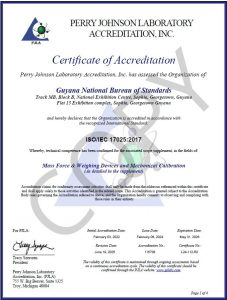The harvesting of the first rice crop for 2023 has commenced in the various rice-producing regions of Guyana, and while farmers are aiming to maximize profits from their yields, millers are seeking to buy paddy at reasonable prices. At this time, accuracy and transparency in all transactions are crucial to ensure that the interests of both farmers and millers are protected. In this regard, the Guyana National Bureau of Standards (GNBS) Legal Metrology services are critical.
As the organisation legally responsible for measurements in Guyana by virtue of the 1981 Weights and Measures Act, the GNBS continues to work to ensure farmers and millers benefit from a reliable measurement system in the industry. The Bureau also has several standards to streamline the production processes and ensure quality rice is produced for local consumption and export.
Over the last three months, Inspectors of the Bureau have been working in the rice growing regions to verify the accuracy of Weighbridge scales used to determine the quantity of paddy being sold to the rice mills. A total of forty (40) such scales were verified by the GNBS.
The GNBS has acquired additional test masses and a second test truck which has increased the efficiency of its verification service across the country. With two test trucks, the Bureau will be able to effectively conduct more impromptu visits to mills during the rice harvesting season to ensure there is measurement accuracy and transparency in the purchasing of paddy by millers.
Meanwhile, millers have been submitting their commercial moisture meters used to determine the moisture content of paddy to the GNBS Main Office and Regional sub-offices for verification. The commercial moisture meters are the only type that should be in use at the rice mills since they are more reliable to test the moisture content of the large volumes of paddy supplied to mills.
It is based on measurements that farmers are paid for their crops. Accurate measuring instruments contribute to fairness in the rice industry by ensuring farmers receive the right amount of money for their produce. Further, it reduces misunderstandings, legal battles, and other backlashes for millers.
To further guard against such occurrences, farmers are encouraged to be present to oversee the weighing of paddy on arrival at the rice mills, and to ensure that scales and moisture meters are verified. Importantly, scales must indicate zero before weighing commences, and the record of weight (printed copy) provided must be correct.
For millers, it is important that they allow farmers to witness the weighing of paddy and the processes of determining moisture and dockage contents. Additionally, millers should promptly address queries raised by farmers to ensure transparency, and ensure all transactions are conducted in the SI (Metric) units of measurement.
Apart from ensuring reliable measurements, the implementation and use of standards is very important and can be considered essential for addressing quality issues in the rice industry.
The CARICOM Standard – “Specification for Rice” can be used to determine the quality of rice to maximize value and increase buyer satisfaction. The standard, which can be acquired from the GNBS prescribes the requirements for the grades of paddy, cargo rice, milled rice, cargo parboiled rice and milled parboiled rice, is available for use by stakeholders in the rice industry.
Packaging and labeling of rice are also important, particularly to consumers and larger buyers. For labels that conform to requirements, millers and packers can be guided by the National Standard for the labeling of prepackaged foods GYS 9-9: 2003.
The GNBS will continue to work with the regulating agency, the Guyana Rice Development Board (GRDB) to ensure measurement transparency and quality rice is produced for the local and international markets.
For further information, contact the GNBS on telephone numbers: 219-0064-66 or Whatsapp 692-4627. Information is also available on the GNBS website: www.gnbsgy.org or facebook.com/gnbsgy.






